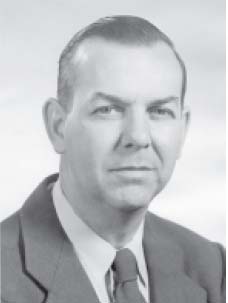
by Keith Killingbeck
A tour-de-force in the teaching profession, Elmer A. Palmatier engaged more than 12,000 students in the fine art of thinking during the 40 years he spent in the Department of Botany at the University of Rhode Island. A hallmark of his teaching strategy was the devious ways in which he inspired and coerced his students to think. This, in itself, gave great pleasure to both teacher and student. Recognition of his teaching prowess was formalized in 1974 when Elmer was the recipient of the prestigious URI Award for Distinguished Teaching. On that Award are included these words: “[Students] are swept along by his enthusiasm for and wide scholarly knowledge of his subject matter. Even with a large General Botany class, he is able to generate a sense of excitement … He is perhaps most at home at the front of a long line of students wending its way toward the Great Swamp, the dunes, or through the woods and salt marshes.”
At home, indeed. Elmer loved to be in the field, and loved to be in the presence of students. When both loves converged, Elmer was at his best. “Students,” to Elmer, did not necessarily mean larval botanists formally enrolled in a class. It meant students of life. It meant students for life. Whether it was General Botany or Field Botany or Saturday Morning Serendipity Botany, Elmer used to revel in prodding and probing. He trolled for thoughts, ideas, inconsistencies, ironies, enigmas, all of which were fodder for A Lesson. The lesson was often about botany, but it was almost as likely to be about some more cosmic, philosophical aspect of our lives on this planet. In a scratched-out list of his favorite quotes I found this, attributed to Timothy Ferris: “It is flattering to know that our ignorance is infinite—it gives us a sense of spaciousness.” Pure Palmatier.
Elmer was born in Tacoma, Washington, but his botanical roots were sunk deeply into the prairies of the Midwest. Ord, Nebraska was home—a tiny town in the middle of North America’s sea of grass. Formal training in botany began at the University of Nebraska, where in 1935 Elmer earned a Master of Science degree. Ithaca, New York, was the next stop on his road to Rhode Island. At Cornell University, Elmer earned his Ph.D. under the guidance of Dr. Arthur J. Eames and a host of other eminent botanists. Plant taxonomy and morphology were the topics that excited him most and were ultimately the focus of his life’s work.
Curiosity and originality were traits that Elmer honed to a razor-sharp edge. Curiosity led him to virtually every ecological community-type and geographical location on this planet, from Bora Bora to Katmandu. In a way, that same curiosity led him to professional appointments at the University of Miami (1956), the University of Baghdad in Iraq (1961–62), the National Science Foundation in Washington D.C. (1965–66), and Duke University (1970). As far as originality, how many professors have you seen race an undergraduate down a dusty road … during class … after an already strenuous hike to Ell Pond … when said professor was 69 years old? He lost the race, but he won the hearts of the class. While it is a truism that everyone is one-of-a-kind, Elmer was about three-of-a-kind.
Of all Elmer’s publications, The Flora of Rhode Island, published in 1952, was not only his best known work, but was for many years the final word on the presence or absence of plant species in the state. Although more recent treatments of the Rhode Island flora have supplanted the 1952 Flora as the collective authority on the this state’s higher plants, botanists region-wide still seek out information contained in the well-worn copies of “Palmatier ’52” that rest in places of honor on our shelves.
As I was driving to Elmer’s memorial service on a melancholy day in Kingston in the winter of 1995, I passed a car driven by none other than Santa himself. I knew it was the real Santa because he was at the controls of an old Dodge Dart. Only Santa would have the mystical charisma necessary to drive an antiquated Dart in 1995. Immediately, the similarities struck me. Hearty laugh. Twinkle in his eye. Elmer. I don’t know if my friend and colleague of many years ever donned a Santa suit, but I do know that he gave me, and I am sure, many of you, priceless gifts that will never be forgotten.
Few peers could equal Elmer Palmatier in the knowledge he had of the Rhode Island flora, and perhaps even fewer still had the enthusiasm and energy required to so successfully promote the excitement and importance of botany. He often counseled students that “there is no monotony in studying one’s botany,” a proverb he crafted into a beacon for his own personal life—there is no monotony, period. Well known as an inspiring teacher and consummate natural historian, Elmer will now also be fondly remembered as a RINHS Distinguished Naturalist.
Keith Killingbeck is Professor of Biological Sciences at the University of Rhode Island and President of the RINHS Board of Directors.